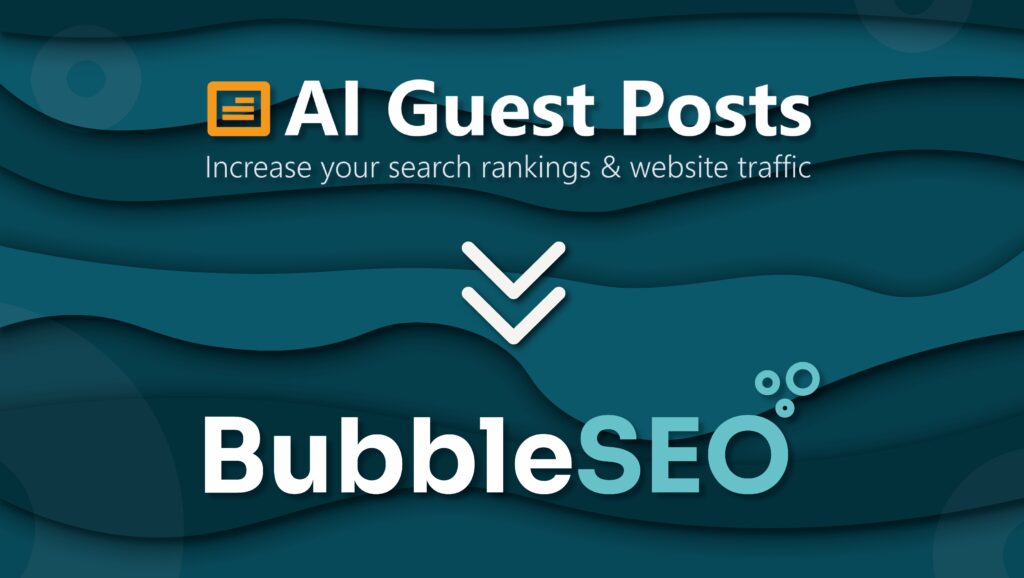
How to drive traffic to your guest post?

Marketing tips to enhance your calendar.

The calendar year is something that rarely changes, so why not play on the annual/every few years seasonal activities and events? Things like Christmas, Easter, Sporting evets like Wimbledon, The Masters, F1, the London Marathon, and numerous endless tournaments, Black Friday events, Festivals like Glastonbury, the list really is endless. But how can you work these into your marketing schedule and include current seasonal content? See some of our tips below….
While the focus is usually on the upcoming events and although this is important, taking that step ahead is also a great strategy. Take the time to start your preparation for the coming year early and plan which of your calendar events could be the most successful for monopolise on for your business. Using tools like Google Trends will help with what aspects have been/are popular and will be a good indicator for what will really take off next year. Think about content marketing research that you already have and figure out:
[article_advert]
If you are going to create relevant holiday content and make the most of it, it is best to plan when. You do not want to wait too late to pitch it and end up missing the key time slot for this! It is better planning to get articles written early and scheduled out for a future date, rather than rushing them and missing the deadline. To get your content done before time and effectively, use these tricks below:
The holiday season is always a difficult time to capture the attention of clients so if you can be prepared with what you would like to publish across each different platform this will be more effective for your audience, and less stressful for you. Knowing who and what to market on each platform is key. Keep in mind:
If you can prepare in advance and make sure your content is visible and live on multiple platforms, you have the best chance to get in front of your audience. Make the most of creating seasonal content to make it personal and giving the best chance for it to get noticed!
Grow your business online with content marketing solutions from Bubble SEO today.
Place An Order
If you're new to SEO, navigating through its many layers can seem overwhelming. However, by following a clear, structured approach, you can start optimising your website and boosting your rankings effectively. Here's The Ultimate SEO Checklist for Beginners to help you understand the fundamentals and ensure you're on the right path to success. 1. Keyword Research Keywords form the foundation of any SEO strategy. Start by identifying the main keywords that are relevant to your business or niche. Tools like Google Keyword Planner, Ahrefs, or SEMrush can help you find high-traffic keywords with low competition. Target Long-Tail Keywords: These are more specific phrases that are less competitive and can help you capture targeted traffic. For example, instead of just "SEO," use "SEO for small businesses" or "SEO checklist for beginners." Understand User Intent: Ensure your keywords align with what your target audience is searching for, and use them naturally in your content. 2. On-Page SEO Optimisation Once you've identified your keywords, it's time to optimise your website pages. Title Tags: Include your primary keyword in the title tag, ideally at the beginning. Keep it under 60 characters. Meta Descriptions: Write compelling meta descriptions with your primary keyword to improve click-through rates (CTR). Header Tags: Use headers to structure your content, with the primary keyword in the H1 tag and related keywords in the H2 and H3 tags. Image Alt Text: Include keywords in the alt text of images to help search engines understand the context of your visuals. 3. Create High-Quality Content Content marketing is at the heart of SEO success. Focus on providing valuable, informative, and engaging content that resonates with your audience. Write for Humans First: Avoid keyword stuffing and prioritise creating helpful content that satisfies the needs of your readers. Use Keywords Naturally: Place your primary keyword in the first 100 words, and sprinkle related keywords throughout the text. However, keep the flow natural. Content-Length: While there’s no magic number, longer content (1000+ words) often ranks better, but only if it provides comprehensive value. Consistent Blogging: Regularly publish fresh blog posts on topics relevant to your audience, leveraging your target keywords. 4. Mobile Optimisation With mobile traffic now surpassing desktop, it’s critical that your website is optimised for mobile users. Responsive Design: Ensure your website is mobile-friendly and loads quickly on all devices. Fast Page Load Times: Use tools like Google PageSpeed Insights to check and improve your site’s speed. Slow sites can hurt both rankings and user experience. 5. Build Strong Backlinks Link building is essential for establishing your site's authority in your industry. The more high-quality backlinks (external sites linking to your content) you have, the better your chances of ranking higher in search results. Guest Posting: Write guest posts for reputable blogs within your niche and include backlinks to your site. This helps both SEO and brand visibility. Internal Linking: Link to other relevant content on your website to create a clear structure and boost page authority. Earn Editorial Links: Create high-quality, shareable content that others in your industry will naturally link to, such as guides, infographics, or data-driven reports. 6. Technical SEO Technical SEO ensures that your website is easy for search engines to crawl and index. Submit XML Sitemap: Make sure your site is indexed by submitting an XML sitemap to Google Search Console. Fix Broken Links: Use tools to identify and repair any broken links on your site, as they can hurt both user experience and SEO. Enable HTTPS: If your site doesn’t have an SSL certificate, secure it with HTTPS to protect users and improve rankings. 7. Track and Analyse Your Results SEO is an ongoing process. You need to monitor and measure your performance to see what’s working and what needs improvement. Use Google Analytics: Track your site’s traffic, top-performing pages, and where your visitors are coming from. Monitor Rankings: Regularly check how your keywords are ranking in search engines, and adjust your strategy accordingly. Watch Your Competitors: Keep an eye on competitors who rank well for your target keywords and analyse what they are doing right. By following this SEO checklist, beginners can set a strong foundation for long-term SEO success. From keyword research and content marketing to link building and technical SEO, each step is vital for improving your website’s rankings and visibility. Stay consistent, be patient, and continually refine your strategy as you track your results. With time and effort, you’ll start seeing the benefits of your SEO efforts!

We're excited to announce that AI Guest Posts has undergone a transformative rebranding and is now known as Bubble SEO. This strategic move has allowed the business to develop within the digital landscape and highlight our commitment to providing digital marketing solutions tailored to enhance online visibility and engagement for our customers. Bubble SEO remains dedicated to delivering high-quality, targeted content and effective SEO solutions that align with evolving digital marketing trends. Here is a little more information about our brand and its services. Our services: At Bubble SEO, we specialise in three core services, with content writing being a new feature to the website: Guest Posting: Which aims to enhance your online presence with high-quality guest posts on authoritative websites, driving traffic and boosting your SEO rankings. Link Building: Helps build a robust backlink profile with strategic link building services that improve your website's authority and visibility. Content Writing: Provides engaging content for your audience with compelling content tailored to your brand voice and SEO needs. Benefits of Bubble SEO: We have now made changes to the booking process to simplify this, and updated the customer dashboard section in the hope to improve our existing values below: Enhanced Service Quality: With our rebranding comes a renewed focus on delivering top-notch services that exceed your expectations. Improved User Experience: Our new website offers a streamlined interface, making it easier for you to navigate and access our services. Expanded Network: Benefit from our expanded network of partner websites, ensuring broader outreach and better opportunities for your business. Loyalty Rewards: As a token of our appreciation for the continued support of our bookers, we have now introduced loyalty rewards: Exclusive Discounts: Enjoy special discounts as a loyal Bubble SEO customer, with the more points you acquire, the more exciting offers you will unlock. We're thrilled about this new chapter as Bubble SEO and look forward to continuing to be your trusted partner in achieving your digital marketing goals. Stay tuned for more exciting updates and announcements! Discover the new Bubble SEO and elevate your online presence today! Jennifer Hobson – Digital Marketing [email protected] Heather Ryan – Business Development [email protected]

In the constantly changing landscape of SEO, staying ahead of the competition means focusing on more than just keywords and backlinks. A growing emphasis is on building topical authority—a strategy that helps websites become recognised experts in their niche, providing immense value to both search engines and users alike. But what exactly is topical authority, and why is it crucial for SEO success? Let’s delve deeper into this concept and understand how to build it effectively. What is Topical Authority? Topical authority refers to how well a website is trusted to provide comprehensive, expert information on a particular subject or niche. In simple terms, it's about becoming an authority in a specific area by covering it extensively and in-depth. When Google sees that your website consistently offers valuable, well-researched, and complete information about a topic, it begins to consider you a "go-to" source for users looking for information on that subject. For example, if your website specialises in “vegan cooking,” building topical authority means creating a vast amount of content that thoroughly covers every aspect of vegan cooking—recipes, ingredients, benefits, challenges, tips for beginners, and more. By consistently providing high-quality, interconnected content, your site gains authority over time, which translates to higher rankings and increased organic traffic. The Importance of Building Topical Authority 1. Improved Search Engine Rankings Search engines, particularly Google, are constantly working on improving the relevance of the search results they provide to users. With advancements in AI and semantic search, Google now looks beyond individual keywords and assesses the overall context of a website. Websites with topical authority are more likely to be ranked higher because Google recognises them as comprehensive and trustworthy sources. 2. Increased User Trust and Engagement Users are more likely to trust websites that provide in-depth, reliable information on a subject they are researching. If a visitor lands on your website and finds a treasure trove of well-organised content, they are more likely to stay longer, interact with your site, and return in the future. This engagement boosts important metrics like time on page and bounce rate, which further helps with SEO. 3. Higher Relevance in Competitive Niches When you establish topical authority, it helps you stand out even in a highly competitive niche. While it may take longer to build compared to targeting specific keywords, the payoff is that you become a resource that Google and users will continue to trust, giving you a competitive edge. Topical authority is especially important in YMYL (Your Money, Your Life) areas, such as health, finance, and legal content, where credibility is key. 4. Sustainable Long-Term Growth Instead of chasing temporary ranking gains through keyword manipulation or questionable link-building practices, building topical authority provides a long-term, sustainable path to SEO success. Google prioritises user satisfaction, and websites that genuinely offer valuable information are more likely to withstand frequent algorithm changes and updates. How to Build Topical Authority: A Step-by-Step Guide Building topical authority requires a well-planned approach that covers the subject matter thoroughly and strategically. Here's a short guide to help you get started: Step 1: Define Your Niche To become an authority, you need to start with a well-defined niche. Broad topics are difficult to dominate, so focus on a specific segment within your industry. For example, instead of focusing on “fitness,” narrow it down to “strength training for women” or “HIIT workouts for beginners.” This focused approach allows you to provide a complete, detailed collection of resources that users and search engines will appreciate. Step 2: Conduct Comprehensive Topic Research Once your niche is clear, research every aspect of it. Tools like Ahrefs and SEMrush can help you identify content gaps and topics that are underrepresented in your niche. Think of the questions people ask, the pain points they have, and the related topics that can support your main subject. The goal is to create a content plan that leaves no question unanswered. Step 3: Create Pillar Content and Cluster Topics Create a pillar page—a long, comprehensive piece of content that covers your niche in depth. From there, develop cluster topics or subtopics that provide detailed information on specific aspects of the main topic. For example, a pillar page on “strength training for women” could link to subtopics like “best strength training exercises,” “beginner strength training programme,” and “benefits of strength training for women.” This internal linking between pillar and cluster content strengthens the topical connection and helps search engines understand that your website covers the subject comprehensively. Step 4: Use High-Quality Backlinks To further enhance your topical authority, consider acquiring backlinks from other reputable sources in your industry. Platforms like Bubble SEO make it easier to gain access to high-authority guest posting opportunities, which can drive traffic and signal to Google that your site is a trusted resource. Aim for backlinks that are relevant to your niche and are from authoritative domains to boost your credibility. Step 5: Maintain and Update Content Google favours websites that are well-maintained and up-to-date. Continually update existing content to reflect the latest trends, statistics, and developments in your niche. Tools like Google Search Console help identify opportunities to refresh content that may be losing its rank over time. This ensures that your content remains relevant and useful, boosting your authority even further. Tips for Strengthening Topical Authority Answer Users' Questions: Make sure your content addresses real questions and pain points users have. Check forums like Reddit and Quora to see what questions people are asking in your niche. Engage with the Community: Actively participate in your niche community through blog comments, social media, and forums. The more you are seen as a contributor, the more authoritative your website will appear. Utilise Structured Data: Incorporate schema markup to help search engines understand the relationships between different pieces of content on your site. This boosts visibility in search results and helps with rich snippets. In an increasingly competitive digital world, building topical authority is the key to establishing your website as a trusted resource in your niche. By providing comprehensive, in-depth content and strategically creating clusters of supporting topics, you not only improve your visibility in search engine results but also build trust and loyalty with your audience. While high-quality backlinks and content promotion are important components of the strategy, the core of topical authority lies in consistently delivering value to your readers. Start by narrowing down your niche, mapping out a detailed content plan, and continually updating your material. By positioning yourself as an expert voice, you’ll create a sustainable path to SEO success that withstands algorithm changes and fosters lasting relationships with your audience.

One of the ways to promote your personal or corporate brands is through guest blogging, also known as guest posting

In the digital age, content marketing remains a cornerstone of successful online business strategies. By creating valuable, relevant, and consistent content, businesses can engage their audiences, drive website traffic, and boost sales. Whether you’re a seasoned marketer or just beginning your journey, mastering content marketing requires the right tools and techniques. Let’s explore some essentials that can help elevate your content marketing efforts. Understanding Content Marketing Fundamentals Content marketing isn’t just about producing blog posts or social media updates. It’s about delivering the right message to the right audience at the right time. To achieve this, you need a clear strategy. Here are the steps to ensure your content strategy is effective: Define Your Goals: What do you want to achieve? Increased traffic, higher engagement, or more leads? Know Your Audience: Use tools like Google Analytics to understand audience demographics and behaviour. Choose Your Platforms: Focus on where your audience spends the most time—be it LinkedIn, Instagram, or your blog. Essential Content Marketing Tools To stay ahead in a competitive digital landscape, leveraging the right tools is crucial. Here are some must-haves: SEO Tools Google Keyword Planner: Discover high-performing keywords to create targeted content. SEMRush: Analyse competitors and uncover content opportunities. Content Creation Canva: Design engaging visuals without needing advanced graphic design skills. Grammarly: Ensure your content is polished and error-free. Content Management WordPress: Manage your blog and website seamlessly. Bubble SEO: Take advantage of professional guest posting, content writing, and link-building services to amplify your marketing efforts. Social Media Scheduling Hootsuite: Schedule and analyse social media posts across platforms. Buffer: Manage your posting schedule efficiently to maximize reach. Techniques to Perfect Your Content Marketing Strategy Prioritise Quality Over QuantityIt’s better to post one high-quality article per week than several mediocre ones. Focus on providing value to your audience. Optimise for SEOEvery piece of content should be optimised for search engines. Use relevant keywords, meta descriptions, and engaging headlines to improve visibility. For expert advice, visit Bubble SEO. Leverage AnalyticsRegularly analyse your content’s performance using tools like Google Analytics. Track metrics such as page views, time on site, and conversion rates to refine your strategy. Experiment with Different FormatsDon’t limit yourself to blogs—explore videos, podcasts, infographics, and webinars to diversify your content and reach new audiences. Future-Proof Your Content Strategy As trends in digital marketing evolve, staying adaptable is key. Keep an eye on developments in artificial intelligence (AI), voice search, and interactive content. By doing so, you’ll maintain a competitive edge in an ever-changing landscape. If you’re ready to take your content marketing to the next level, explore the bespoke services offered by Bubble SEO. Their tailored solutions will ensure your content reaches the right audience at the right time, driving results that matter. Content marketing is an art and a science. By combining the right tools, techniques, and insights, you can create a strategy that not only captures attention but also fosters long-term growth for your business.

Guest Posting is a practice where individuals or companies contribute articles to other websites or blogs.